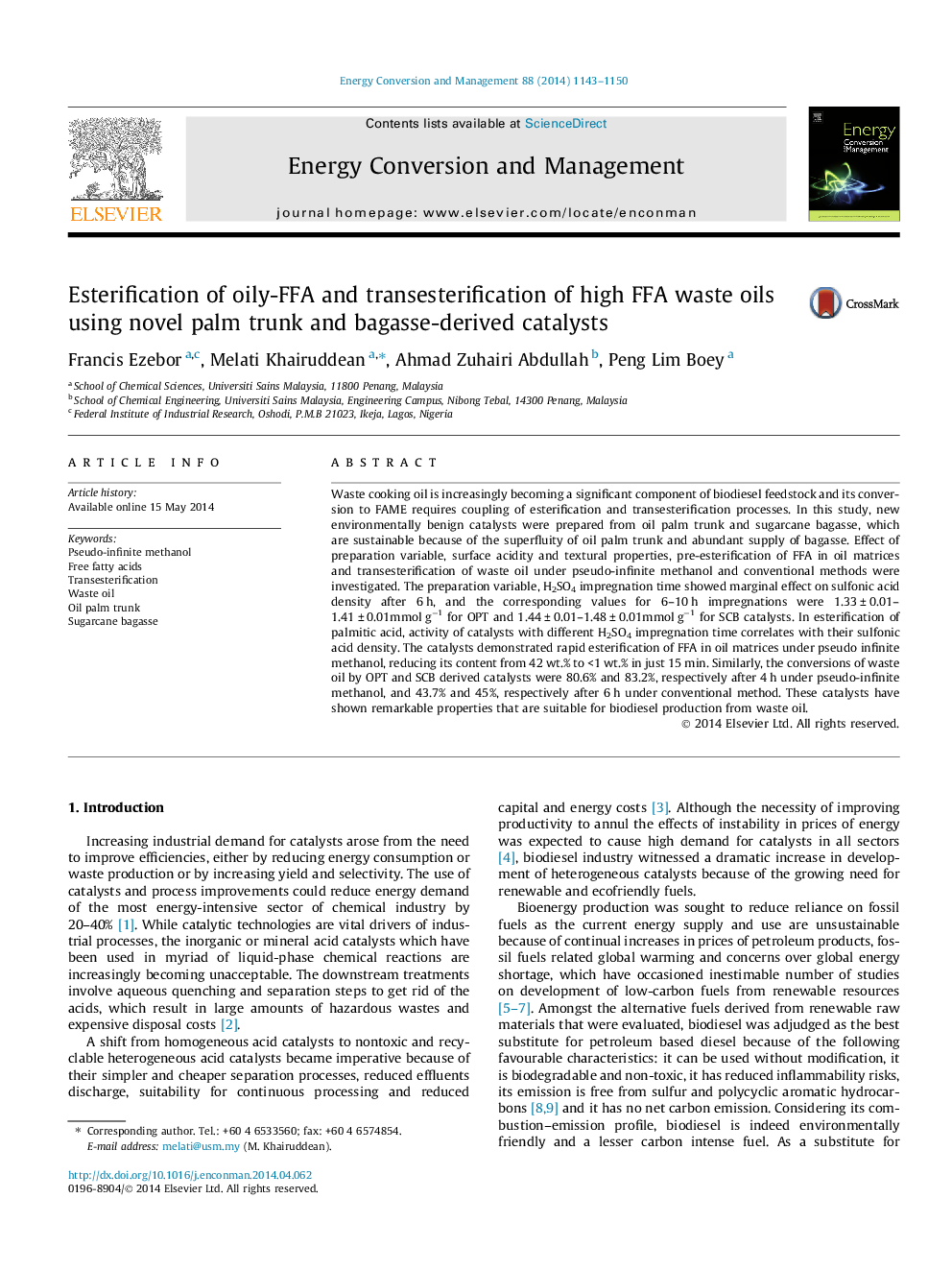| کد مقاله | کد نشریه | سال انتشار | مقاله انگلیسی | نسخه تمام متن |
|---|---|---|---|---|
| 765604 | 1462874 | 2014 | 8 صفحه PDF | دانلود رایگان |

• Novel palm trunk and bagasse derived catalysts have been prepared.
• Reduction of FFAs from 42 to <1 wt.% in 15 min under pseudo-infinite methanol.
• Transesterification of waste oil results in FAME yield of 80.6–83.2% in 4 h.
• Pseudo-infinite methanol affords two-folds FAME yield of conventional methods.
Waste cooking oil is increasingly becoming a significant component of biodiesel feedstock and its conversion to FAME requires coupling of esterification and transesterification processes. In this study, new environmentally benign catalysts were prepared from oil palm trunk and sugarcane bagasse, which are sustainable because of the superfluity of oil palm trunk and abundant supply of bagasse. Effect of preparation variable, surface acidity and textural properties, pre-esterification of FFA in oil matrices and transesterification of waste oil under pseudo-infinite methanol and conventional methods were investigated. The preparation variable, H2SO4 impregnation time showed marginal effect on sulfonic acid density after 6 h, and the corresponding values for 6–10 h impregnations were 1.33 ± 0.01–1.41 ± 0.01mmol g−1 for OPT and 1.44 ± 0.01–1.48 ± 0.01mmol g−1 for SCB catalysts. In esterification of palmitic acid, activity of catalysts with different H2SO4 impregnation time correlates with their sulfonic acid density. The catalysts demonstrated rapid esterification of FFA in oil matrices under pseudo infinite methanol, reducing its content from 42 wt.% to <1 wt.% in just 15 min. Similarly, the conversions of waste oil by OPT and SCB derived catalysts were 80.6% and 83.2%, respectively after 4 h under pseudo-infinite methanol, and 43.7% and 45%, respectively after 6 h under conventional method. These catalysts have shown remarkable properties that are suitable for biodiesel production from waste oil.
Journal: Energy Conversion and Management - Volume 88, December 2014, Pages 1143–1150